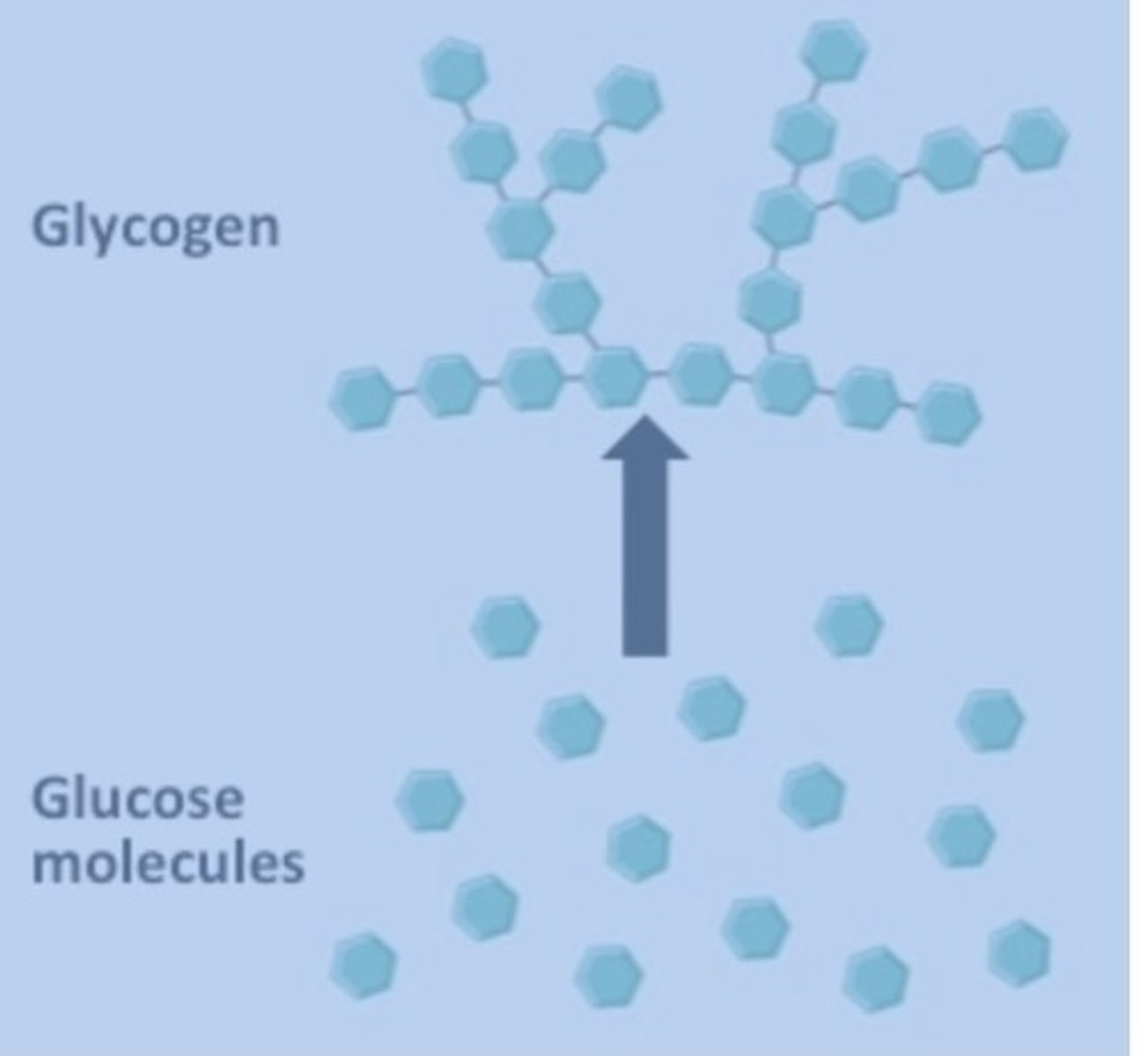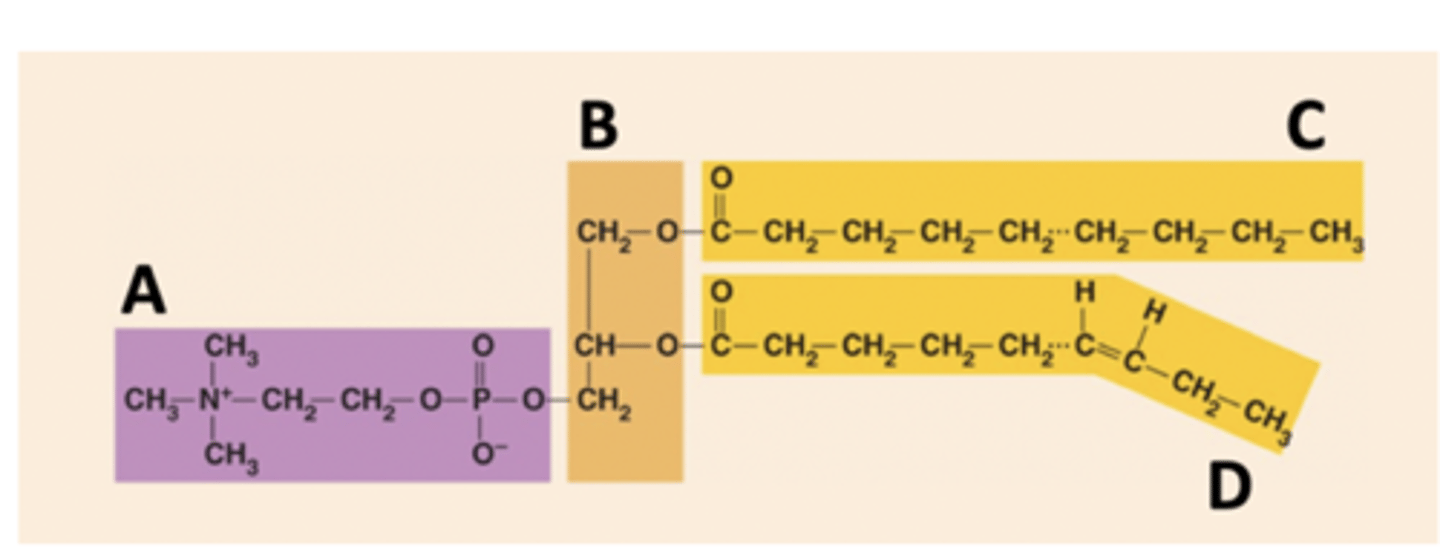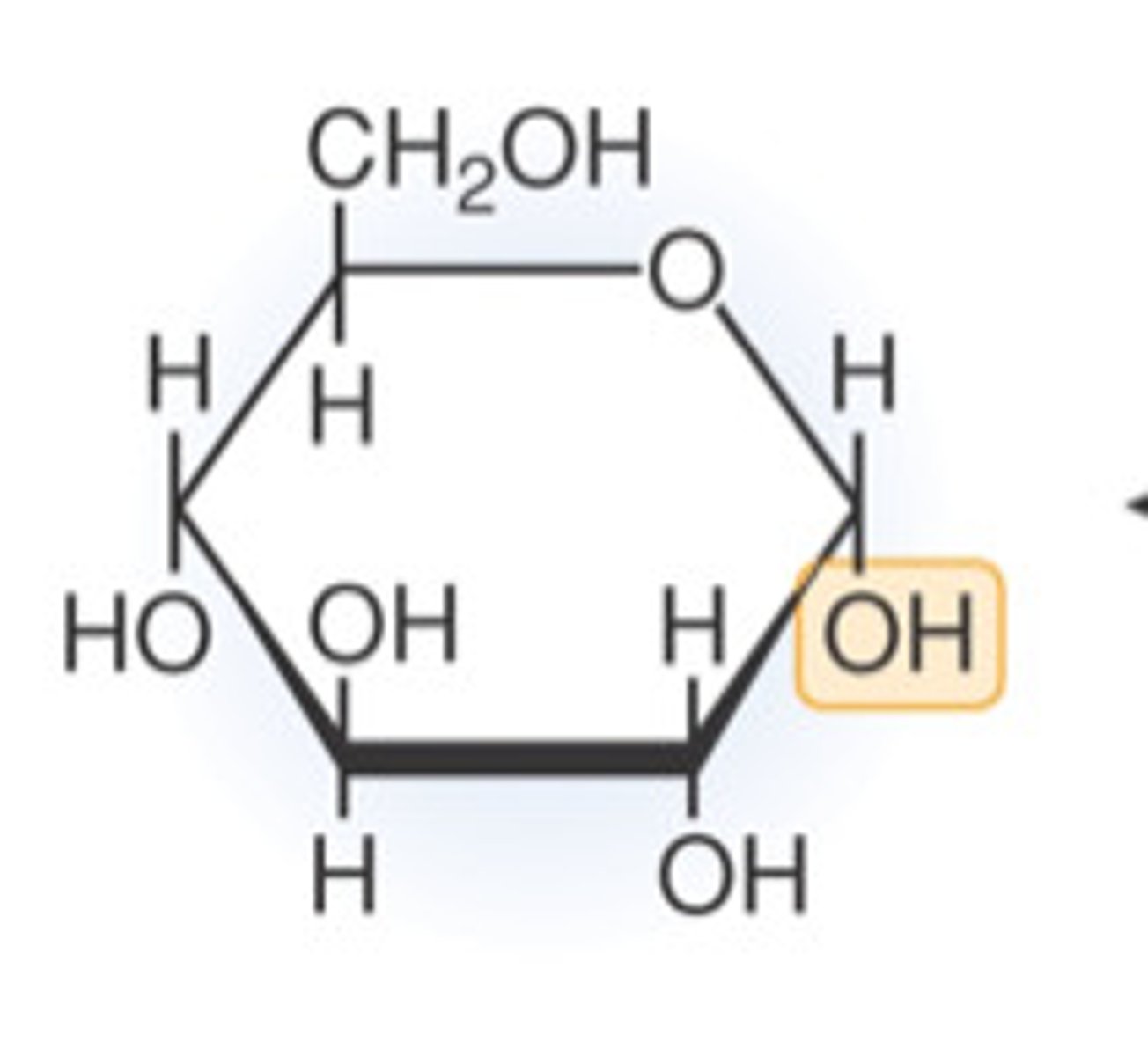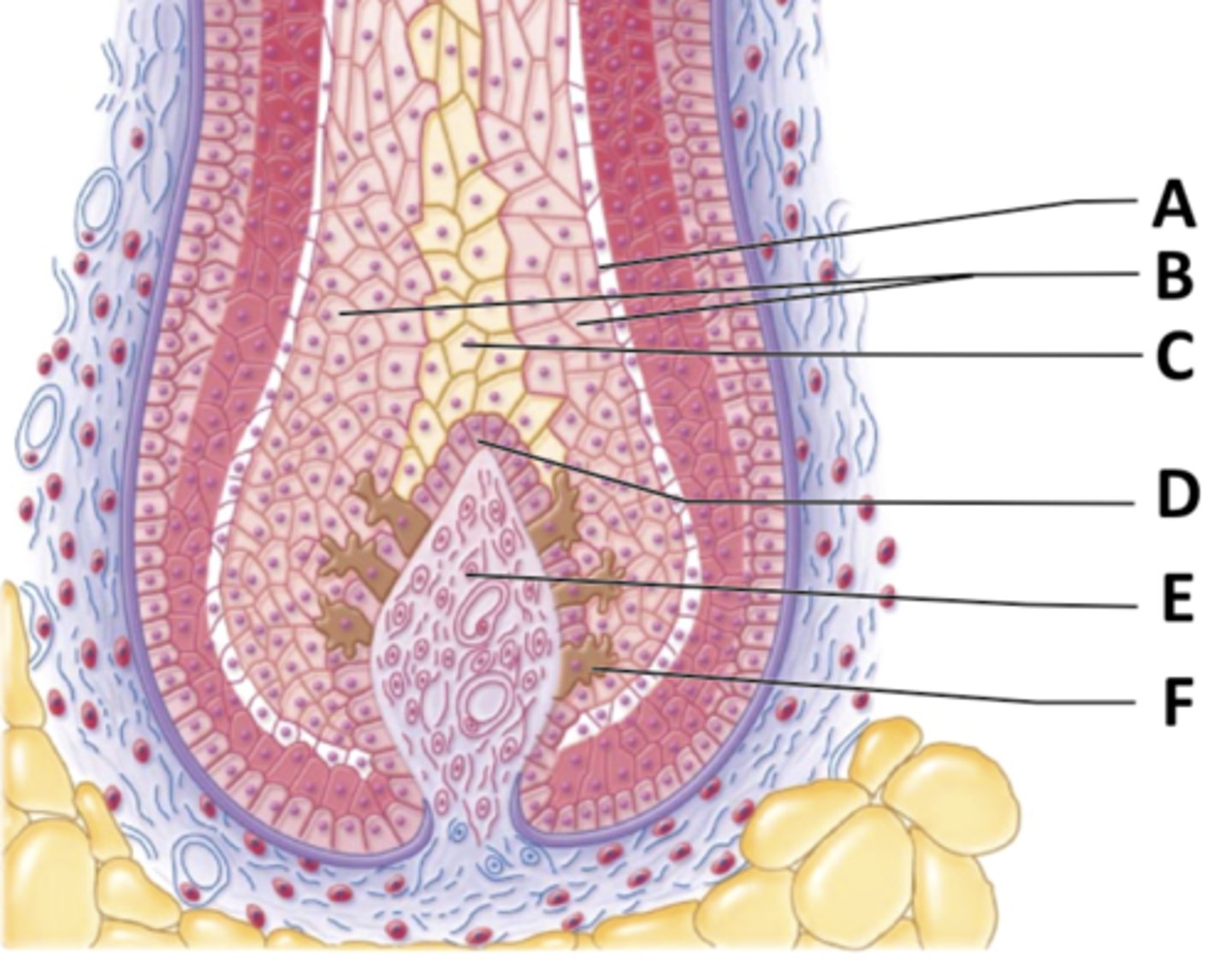Anatomy and Physiology FINAL EXAM
1/248
There's no tags or description
Looks like no tags are added yet.
Name | Mastery | Learn | Test | Matching | Spaced |
|---|
No study sessions yet.
249 Terms
The cardiovascular system is an example of a(n):
Organ System
Which of these steps occurs latest in the sequence?
Efferent pathway
The spleen is part of which organ system?
Lymphatic
The vagina & penis are part of which organ system? (You may need to select more than one answer)
Reproductive
In ________________, the variable deviates further from the initial value.
Positive Feedback
Changing the number of protons results in
Different Element
Attraction between two polar molecules constitutes:
Hydrogen Bond
This image is depicting which type of reaction?
Dehydration Synthesis

Which of the following is NOT an organic molecule?
NaCl (table salt - sodium chloride)
Which is indicating a saturated fatty acid tail:
C

In this image, the breakdown of sucrose constitutes:
Hydrolysis

Glucose is a:
monosaccharide

A molecule that is partly polar and partly nonpolar is:
amphipathic
A(n) ________ is amphipathic.
Phospholipid
_ is/are the basis of steroid hormones.
Cholesterol
Amino acids differ only in their:
Functional (R) group
The red arrow indicates:
Enzyme
What kind of chemical bond holds the two strands of the DNA molecule together?
Hydrogen Bonds
Which of the following nucleotide bases is found only in DNA:
Thymine
Adenosine triphosphate (ATP) contains a sugar in its structure.
TRUE
adds rigidity to the cell's plasma membrane.
Cholesterol
are proteins that are not embedded within the cell plasma membrane
Peripheral membrane proteins
In the cell's plasma membrane, cholesterol is found:
Mostly in the interior of the phospholipid bilayer
Simple diffusion is how ions move across the cell membrane.
False
Placing a cell into a(n) _____________ solution will cause it to swell and burst.
Hypotonic
Using a Na+-gradient (which is produced by an ATP-powered Na+ pump) to drive movement of other solutes (e.g., glucose) constitutes:
secondary active transport
Which of these organelles is membranous?
golgi complex
This organelle makes ATP:
Mitochondria
has ribosomes
Rough ER
The ribosome structure contains RNA.
True
Cholesterol and steroid synthesis occurs in the:
Smooth ER
The purpose of this structure is to increase surface area:
microvillus
Transcription occurs in:
The ribosome
The "Central Dogma of the Cell" is:
DNA>RNA>Protein
Synthesis of an mRNA molecule complementary to a DNA template is called:
Transcription
has an amino acid at one end and three nucleic acids at the other.
tRNA
A codon is comprised of ____ nucleotides.
3
Which of the following is a sugar:
Glucose
Which is NOT one of the four primary tissue types:
Blood
Desmosomes help the cell by:
Resisting stretch forces
Epithelial tissues are highly vascularized.
False
Which is comprised of large amounts of sugars and a small amount of protein:
proteoglycan
The ____________ membrane covers organs and does not open to the exterior of the body.
Serous
glands have ducts.
exocrine
Which of the following is NOT a connective tissue type:
Fat
Connective tissues share a developmental origin (all are derived from the mesenchyme of the embryo).
True
Extracellular matrix (ECM) is composed of ground substance and
fibers
fibers have the highest tensile strength.
Collagen
The immature cell type in cartilage is:
chondroblast
The hematopoietic stem cell (HSC) generates:
Blood
The papillary layer of the dermis is comprised of:
Areolar CT
This epidermal layer is only present in "thick" skin:
stratum lucidum
The deepest layer of the dermis is:
Reticular layer of dermis
This is the most numerous cell type of the epidermis:
keratinocyte
This epidermal layer has stem cells.
stratum basal
Fingerprints are the result of:
friction ridges
Melanocytes are most abundant in the stratum
basale
is a highly regulated process of cell death that normally occurs as part of keratinization.
Apoptosis
________ are cells that package the pigment _________ into vesicles called _________ which are transferred to keratinocytes.
melanocytes; melanin; melanosomes
Epithelial tissues are highly vascularized.
False
Red hair color reflects the presence of:
Iron
Which part of the hair follicle is the cortex:
B

Patchy hair loss is normal for:
Abnormal
glands become active at puberty, are present in axillary/genital areas, and are associated with hair follicles.
apocrine
In a holocrine gland, the entire cells ruptures and cell fragments and debris are also secreted.
True
Dendritic cells are immune cells found in skin that can act as phagocytes of foreign bacteria. This is an example of a(n):
Biological barrier
Skin is involved in activation and metabolism of Vitamin ___ , which has a cholesterol-based structure.
D
tumors arise from keratinocytes of the stratum spinosum.
squamous cell carcinoma
A burn that extends partially into the dermis is ____ degree.
2nd
are muscles that raise the pilus to cause "goose bumps".
Arrector pili
The trachea is composed of:
hyaline cartilage
Growth of cartilage that occurs along the edges/surfaces is called:
Appositional growth
The scapulae are part of the ____ skeleton.
Appendicular
Osteocalcin is secreted by:
Osteoblasts
Which part of bone performs hematopoiesis (blood production)?
Red Marrow
Osseous tissue is a form of:
Connective tissue
Flat bones (e.g., cranial bones) assist in hematopoiesis:
True
Parathyroid hormone (PTH) stimulates _________ activity.
Osteoclasts
are collagenous fibers that extend for the outer layer of the periosteum, through the inner layer, and attach to the surface of a bone.
Sharpey's fibers
In a normal, healthy adult, the body's blood supply is produced in the:
Red bone marrow
Which of the following cells can NOT be derived (directly or indirectly) from osteogenic cells:
osteoclast
Which cell type secretes osteoid:
osteoblast
The _________ is responsible for breaking down bone ECM.
Osteoclasts
The _________ is derived from hematopoietic stem cells (HSCs).
Osteoclast
What gives bone its tensile strength:
collagen
Which of the following is NOT part of osteoid:
Calcium
The most abundant protein component in osteoid is
Collagen
Which of the following is the same as "hydroxyapatites":
Calcium (Ca2+) phosphate crystals
Another name for an osteon is a(n):
Haversian system
The clavicles and many of the flat bones of the skull develop through the process of:
Intramembranous ossification
Bone growth that occurs under hyaline cartilage of articular surfaces and the epiphyseal line is:
interstitial growth
In the _________ zone of the epiphyseal plate, chondrocytes undergo mitosis.
Proliferation
When there are low amounts of pressure on a bone, the osteocyte signals to the ____________ to stimulate bone resorption and recycling.
Osteoclast
The ______________ is created by osteoblasts as they perform appositional growth (bone deposition).
Osteoid seam
Which of the following is an enzyme that assists in bone deposition/growth:
Alkaline phosphatase
Low calcium (Ca2+) in the blood triggers _________ hormone release, which stimulates osteoclast activity.
parathyroid
is the first step of bone healing and is characterized by swelling due to ruptured blood vessels.
Hematoma
is rickets in adults.
osteomalacia
is a disease typically affecting the elderly, characterized by brittle bones riddled with small holes/cavities.
osteoporosis
_ is a cause or risk factor for osteoporosis.
Hypocalcemia